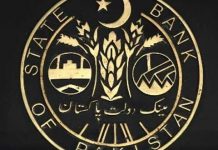An International Monetary Fund (IMF) delegation arrived in Islamabad on Monday to continue finalising budget negotiations for the upcoming fiscal year. As part of its discussions, the IMF has urged Pakistan to remove tax exemptions for the erstwhile FATA/PATA regions and apply standard Goods and Services Tax (GST) rates on fertilizers.
The Federal Board of Revenue (FBR) presented its plan to improve tax administration and enforcement, aiming to generate an additional Rs400 billion in revenue next year. However, the government is also seeking Rs100-150 billion in tax relief for salaried individuals and is advocating for a rationalization of import tariffs, raising concerns over how the IMF will reconcile these competing demands.
Following initial virtual discussions from Turkey, the IMF team, led by Nathan Porter and newly appointed Mission Chief Eva, received approval from their headquarters and traveled to Islamabad for in-person negotiations.
According to sources, the government proposed a phased reduction of tax exemptions in the extribal areas regions, aiming for a 50% phase-out, which could bring in Rs15-20 billion in revenue. A full withdrawal, including an 18% GST, could potentially generate up to Rs40 billion.
While the IMF and the Finance Ministry have tentatively agreed on a tax target of Rs14,307 billion for the FBR, discussions continue on potentially lowering the target to Rs14,100 billion, contingent on reducing government expenditures. As per sources, the flexibility in the target depends on the government’s ability to curb spending. If the government cannot make necessary cuts, the target is expected to remain at Rs14,307 billion.
Debt servicing remains another contentious issue. While the IMF has projected Rs8.7 trillion in debt servicing for fiscal year 2025-26, internal government estimates suggest the amount will be closer to Rs8-8.2 trillion, lower than the current year’s Rs8.7-8.9 trillion allocation.
The Planning Ministry’s demand for a higher Public Sector Development Program (PSDP) budget has also led to disagreements, as the Finance Ministry’s ceiling of Rs921 billion falls short of the Planning Ministry’s request for over Rs1,000 billion to meet development needs.






















